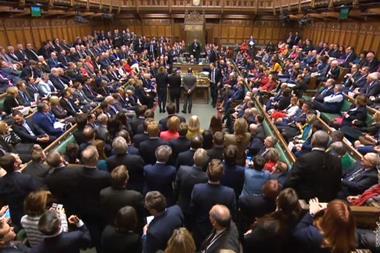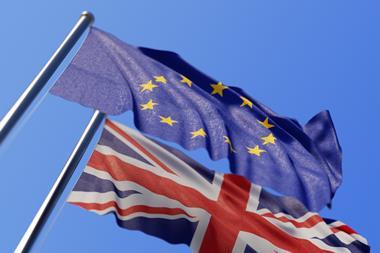The UK government looks set to run out of time to ensure key legislation on the environment, energy and health is implemented if there’s no deal when the country leaves the EU, in just over six weeks. The Institute for Government thinktank says, in its stark assessment of ‘no deal’ preparedness, that the UK will not have an environment watchdog to replace EU oversight until 2021 at the earliest.
It suggests the government would not have had enough time to implement all the legislation even if it had started planning for no-deal in 2016. And ‘the even bigger risk to readiness is having new processes, new systems and new staff in place’ to avoid disruption.
Maddy Thimont–Jack, a researcher on the institute’s Brexit team, says Defra is consulting with non-governmental organisations (NGO) and ‘trying to establish a secretariat, to assess complaints made before the watchdog is established. It will only be able to address concerns after the fact’.
The environment secretary Michael Gove has promised a ‘world-leading’ and tough new regime but, according to the institute, no one UK body can replicate the authority of EU institutions, and proposals for an Office of Environmental Protection (OEP), ‘fall short even of existing UK best practice for comparable bodies’. Its analysis shows the key role played by the EU in enforcing environmental legislation in the UK: between 2003 and 2016, the European commission took enforcement action against the UK on over 100 occasions. Less than a third of these infringements reached the European Court of Justice but, once there, two-thirds of rulings went against the UK.
Ruth Chambers, senior parliamentary affairs associate at Green Alliance, told a House of Lords committee last week that, as proposed, the OEP lacked sufficient independence. Moreover, ‘we don’t believe it has the full range of necessary powers and the powers it does have will lack bite’. Chambers and representatives of other environment NGOs also voiced concern that climate change mitigation is not included in the OEP’s remit, and that the body is England only – potentially creating a governance gap after Brexit.
On health, no deal will mean that the legal basis for medical testing and authorisations would fall away and complex pharmaceutical supply chains would face disruption. However, Jean McHale, professor of healthcare law at the University of Birmingham, notes that the UK’s Medicines and Healthcare products Regulatory Agency (MHRA), has been preparing since 2016. There’s ‘probably a bigger chance of a smoother transition because MHRA is a very experienced agency, and is recognised internationally’. The problem she adds is that ‘we’re in totally uncharted territory… Initial issues will be the practicalities of border trade and logistics’ of getting medicines into the country.
The institute does expect the government to be ready to honour its guarantees that UK beneficiaries of EU research and infrastructure funding will continue to be funded until the end of 2020, when EU-funding programme Horizon 2020 wraps up. However, the Lords EU Home Affairs sub-committee estimates that the UK faces losing 44% of Horizon 2020 receipts because as a non-associated third country, it cannot continue to access European Research Council (ERC) grants, which fund the world’s best researchers working in EU countries, or support for academic exchange and training through the Marie Skłodowska-Curie Actions. It has urged the government to explain how it intends to replace ERC and Marie Skłodowska-Curie Actions funding in the event of a ‘no deal’ Brexit; and to seek full association to the upcoming Horizon Europe programme. Without association, it says, additional programmes will be needed to replace EU funding opportunities, but it will take many years to emulate tried and tested schemes and infrastructure capabilities. It adds that ‘it will be important to ensure the UK’s immigration policy facilitates the frictionless exchange of students and researchers across borders’.

















No comments yet